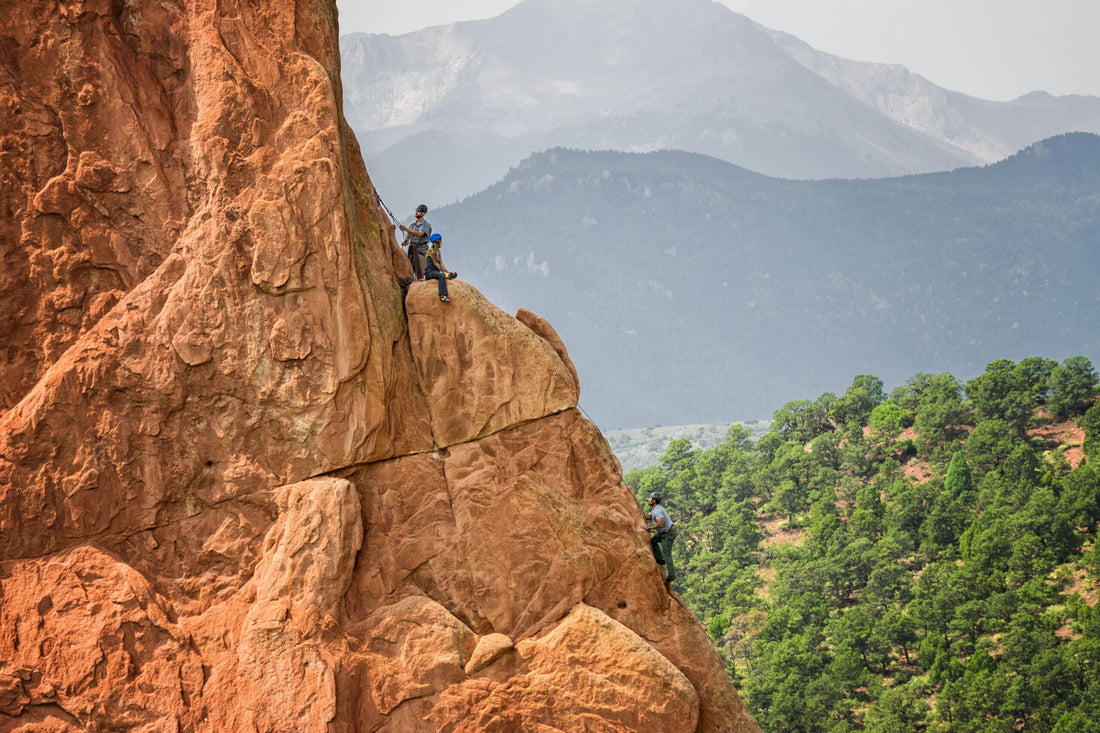
The Psychology of Climbing: Mental Strategies for Facing Your Limits
Climbing is often celebrated for its physical demands, but the psychological aspects of the sport are equally crucial. The mental game in climbing—comprising focus, fear management, and emotional resilience—can significantly impact a climber's performance and overall experience. This article explores the psychology of climbing and offers mental strategies to help climbers face and overcome their limits.
Understanding the Mental Game in Climbing
Climbing is as much a mental challenge as it is a physical one. Climbers frequently encounter mental barriers such as fear, self-doubt, and pressure, which can influence their performance and enjoyment of the sport. Understanding these psychological elements is essential for developing effective mental strategies.
Dr. Laura Thompson, a sports psychologist specializing in climbing, explains:"Climbing requires not only physical strength and technique but also mental fortitude. The ability to manage fear, stay focused, and maintain a positive mindset can make a significant difference in a climber's success and experience."
Strategies for Managing Fear
Fear is a common psychological obstacle in climbing, often manifesting as a fear of falling, heights, or failure. Managing fear effectively can enhance safety and performance.
1.Visualization Techniques:Visualization involves mentally rehearsing climbs, including the moves and the feeling of success. This technique helps climbers build confidence and reduce anxiety. By vividly imagining a successful climb, climbers can prepare mentally for real-world challenges.
Tom, an experienced climber, shares his approach:"I spend time visualizing my climbs before I get on the wall. I picture each move and how I’ll handle any difficulties. It helps me feel more prepared and less anxious."
2.Breathing Exercises:Deep, controlled breathing can help calm the nervous system and reduce fear. Techniques such as diaphragmatic breathing or box breathing (inhaling for four seconds, holding for four seconds, exhaling for four seconds, and pausing for four seconds) can promote relaxation and focus.
3.Exposure Therapy:Gradual exposure to feared situations can help climbers build tolerance and confidence. By progressively tackling challenging or situations, climbers can desensitize themselves to fear and improve their psychological resilience.
Cultivating Focus and Concentration
Focus is critical in climbing, as climbers need to concentrate on their movements, techniques, and the route. Distractions or a lack of focus can lead to mistakes or missed opportunities.
1.Mindfulness Practices:Mindfulness involves paying full attention to the present moment without judgment. Techniques such as mindful breathing and body scanning can help climbers stay grounded and focused during climbs.
Elena, a mindfulness coach, emphasizes:"Mindfulness helps climbers stay present and engaged. By focusing on each move and breath, climbers can enhance their concentration and performance."
2.Setting Process Goals:Instead of focusing solely on outcomes, such as reaching the top of a route, climbers can set process-oriented goals. These goals emphasize the execution of specific techniques or strategies, helping climbers maintain focus and motivation.
3.Routine Development:Establishing pre-climb routines or rituals can help climbers transition into a focused mindset. Routines might include specific warm-up exercises, mental rehearsals, or affirmations that signal readiness for climbing.
Building Emotional Resilience
Emotional resilience is the ability to bounce back from setbacks and maintain a positive mindset. In climbing, resilience is essential for managing frustration, handling failure, and staying motivated.
1.Reframing Failure:Viewing failure as a learning opportunity rather than a defeat can foster resilience. Climbers can analyze what went wrong, extract lessons, and apply those insights to future climbs.
Jake, a climbing coach, advises:"Instead of dwelling on failures, I encourage climbers to view them as valuable feedback. Each setback provides a chance to learn and grow."
2.Positive Self-Talk:Using positive affirmations and self-talk can boost confidence and reduce negative thoughts. Encouraging oneself with phrases like "I am capable" or "I can handle this challenge" can help maintain a constructive mindset.
3.Goal Setting and Reflection:Setting realistic, achievable goals and regularly reflecting on progress can enhance motivation and resilience. Celebrating small victories and acknowledging improvements can reinforce a positive mindset.
The Impact of Mental Strategies on Climbing Performance
Incorporating mental strategies into climbing training can lead to significant improvements in performance and overall experience. Climbers who effectively manage fear, maintain focus, and build resilience are better equipped to tackle challenges and achieve their climbing goals.
Dr. Thompson concludes:"The psychology of climbing is a crucial component of success in the sport. By developing mental strategies, climbers can enhance their performance, enjoy the process, and push their limits."
Conclusion
The psychology of climbing reveals that mental strategies are as important as physical training. By understanding and applying techniques to manage fear, enhance focus, and build emotional resilience, climbers can improve their performance and experience. As climbers continue to explore the mental dimensions of their sport, they unlock new possibilities and reach new heights both on and off the wall.
